# tax
12 posts in `tax` tag
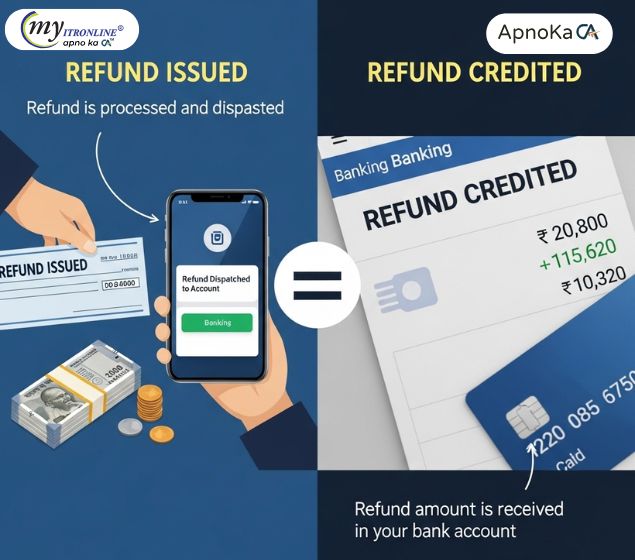
Difference Between Refund Issued and Refund Credited in Income Tax
This guide clarifies the distinction between the two common income tax refund statuses, "Refund Issued" and "Refund Credited." Learn what each status means, the complete refund timeline, key differences, and how to check your refund status for a smoother tax experience
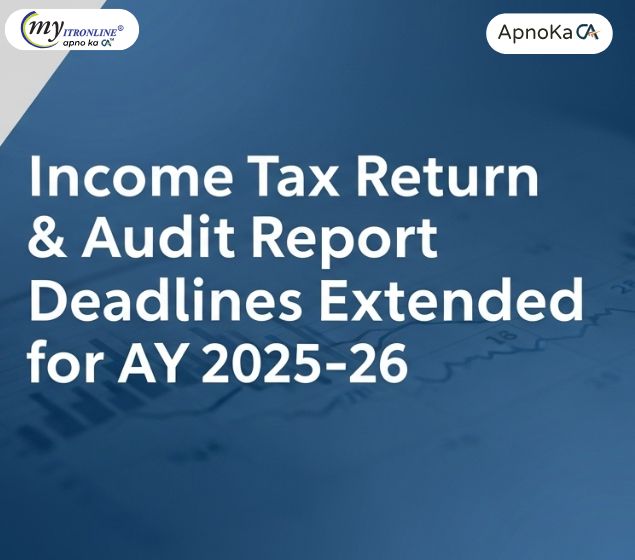
Income Tax Return & Audit Report Deadlines Extended for AY 2025–26
The Central Board of Direct Taxes (CBDT) has extended the deadlines for filing Income Tax Returns and audit reports for the Assessment Year 2025–26. This move offers relief to taxpayers and professionals by giving them more time to complete their filings.
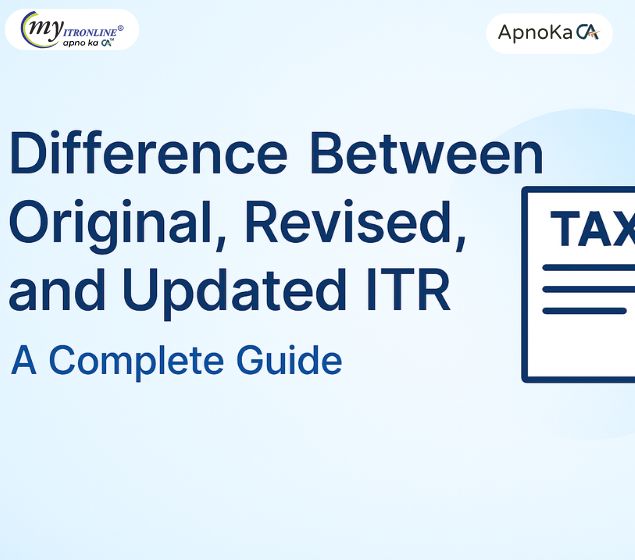
Difference Between Original, Revised, and Updated ITR A Complete Guide
This blog explains the differences between Original, Revised, and Updated Income Tax Returns (ITR) in India. It covers filing timelines, applicable sections, fees, and practical examples to help taxpayers choose the right return type and avoid penalties.
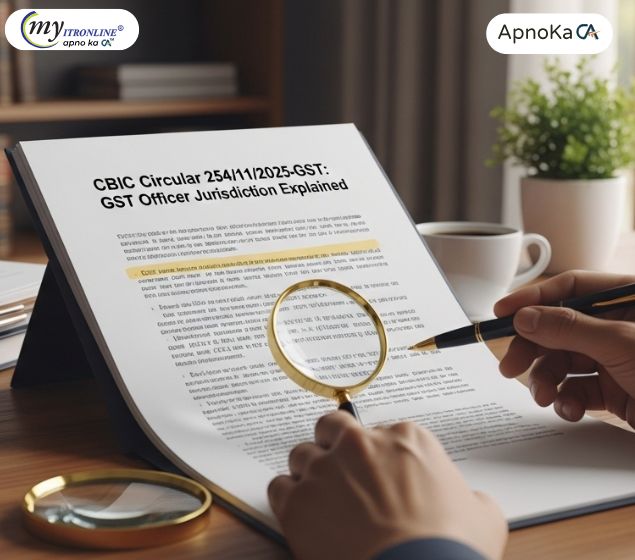
CBIC Circular 254/11/2025-GST: GST Officer Jurisdiction Explained
CBIC has issued Circular No. 254/11/2025-GST to clarify which officers will handle GST cases related to tax, ITC, and penalties under the CGST Act. This blog explains the officer levels, monetary limits, and key sections covered, making it easier for taxpayers to understand who will manage their case.
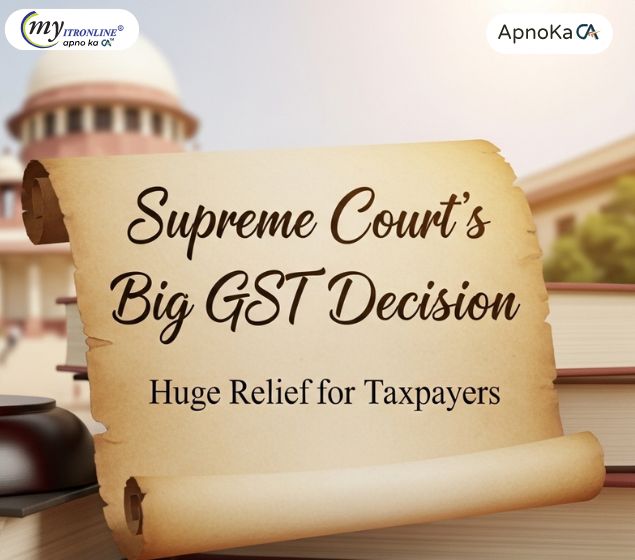
Supreme Court’s Big GST Decision Huge Relief for Taxpayers
The Supreme Court of India has ruled that once a taxpayer pays the 10% pre-deposit required to file a GST appeal, the government cannot freeze bank accounts or recover additional funds. This landmark decision protects honest taxpayers and ensures fair enforcement under GST law.

Tax Refunds Can’t Be Denied for Form 26AS Mismatch: High Court Ruling
The Allahabad High Court has ruled that tax refunds cannot be denied just because TDS is missing from Form 26AS. If a taxpayer provides valid Form 16A certificates, the Income Tax Department must verify the claim with the deductor instead of rejecting it outright. This protects honest taxpayers from delays caused by clerical errors.

Great News for Entrepreneurs! Get Your GST Number in Just 3 Days
GST 2.0 is a game-changer for small businesses in India. Starting November 1, 2025, new applicants can opt for a simplified GST registration process with automatic approval in just 3 working days. Designed for low-risk businesses, this reform reduces hassle and speeds up business launch.
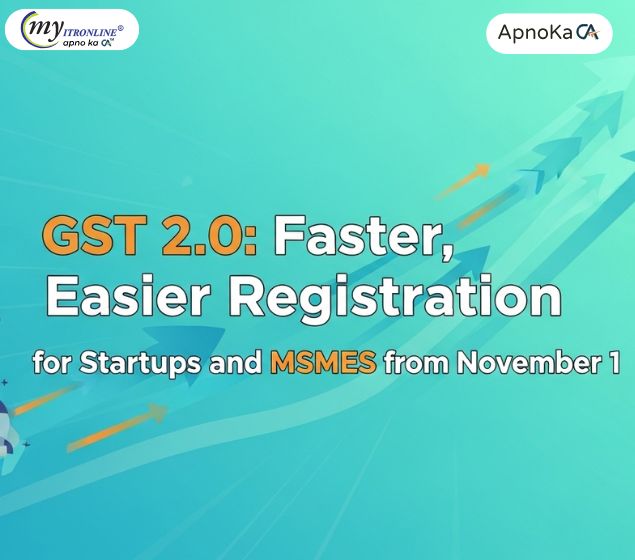
GST 2.0: Faster, Easier Registration for Startups and MSMEs from November 1
From November 1, 2025, small businesses and startups in India can benefit from a simplified GST registration process. This reform promises approval within 3 working days for low-risk applicants and public sector entities. It’s part of the broader GST 2.0 initiative aimed at making tax compliance faster, easier, and more tech-driven. Learn how this change can help you start your business with less hassle and more confidence.
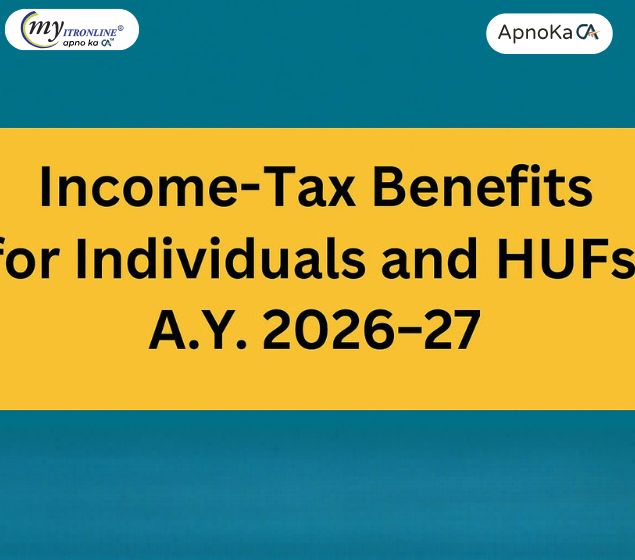
Income Tax Benefits for Individuals and HUFs A.Y. 2026–27
A simplified guide to income tax benefits available to Individuals and Hindu Undivided Families (HUFs) for A.Y. 2026–27. Covers exemption limits, rebates, popular deductions, and simplified tax schemes to help taxpayers plan better and save legally.
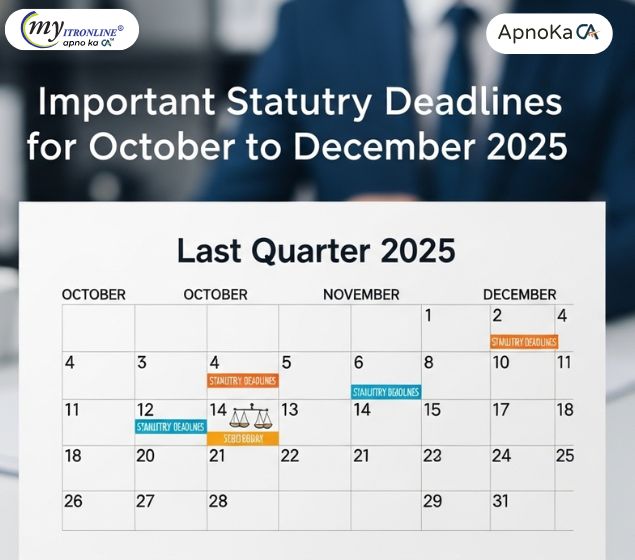
Important Statutory Deadlines for October to December 2025
A concise compliance calendar covering all major statutory deadlines from October to December 2025. Includes GSTR 3B, Tax Audit, ITR filings, TDS Q2, DIR 3 KYC, TP Audit, Advance Tax, ROC filings, and GST annual returns. Stay ahead and avoid penalties with this quick reference guide.
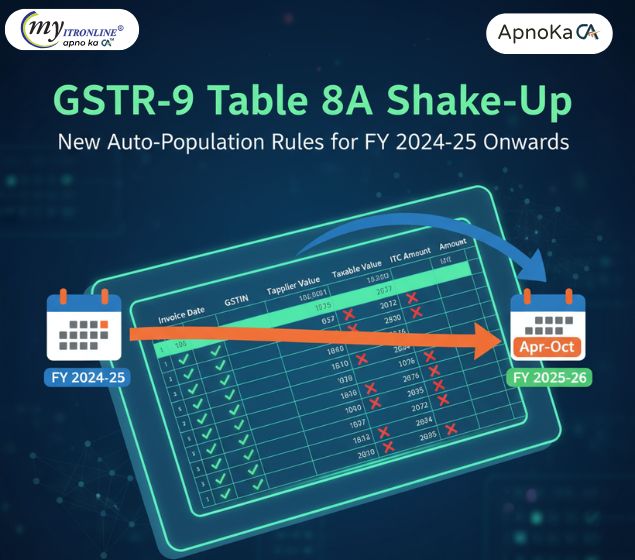
GSTR-9 Table 8A Shake-Up: New Auto-Population Rules for FY 2024-25
GSTN has changed how Table 8A in GSTR-9 is auto-filled. Starting FY 2024-25, it will include invoices from both the current and next financial year, making ITC reconciliation more accurate. Learn what’s included, what’s excluded, and how to prepare.

CBI Nabs GST Officer in Nashik for 5 Lakh Bribe 19 Lakh Seized
The CBI has arrested a Superintendent of CGST & Central Excise in Nashik for allegedly accepting a 5 lakh bribe related to an ITC case. Raids led to the recovery of ₹19 lakh in cash and key documents. The officer is currently in police custody.
